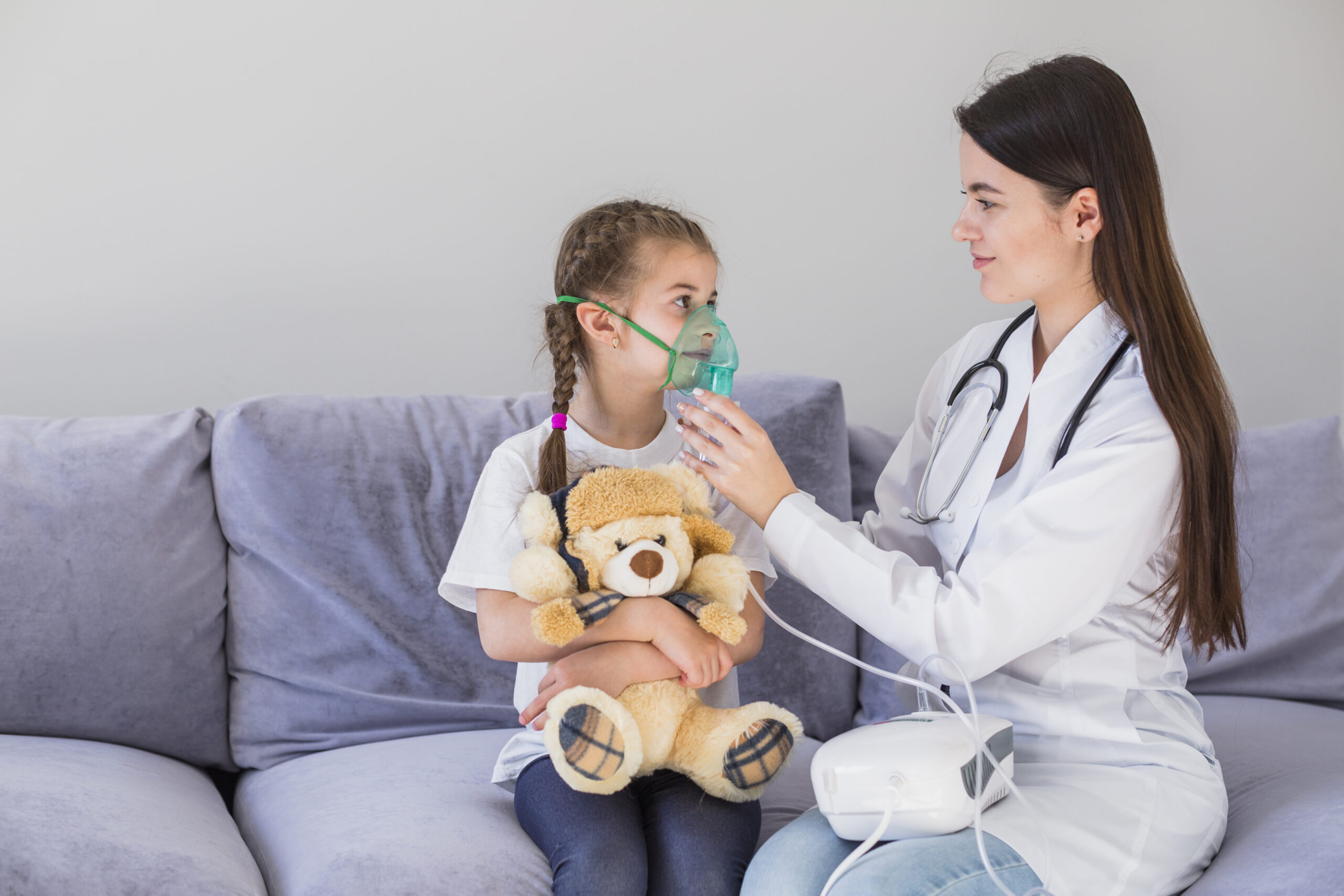Managing Childhood Asthma: Tips for Parents

When your child keeps coughing at night or feels breathless during playtime, it can be worrying. Childhood asthma is more common than most parents realize, but here’s the good news: with the right care, children with asthma can run, play, and enjoy life just like any other kid.
Let’s walk through some practical tips that will help you understand and manage asthma so your child can breathe easy and thrive.
Understanding Childhood Asthma
Asthma is all about inflamed airways. Think of your child’s airways as tiny pipes—when asthma flares up, those pipes tighten and swell, making it harder for air to flow.
Some common triggers include dust mites, pollen, mold, cold air, smoke, exercise, and even viral infections like the flu.
Watch out for signs such as:
- Wheezing (a whistling sound while breathing)
- Frequent coughing, especially at night
- Shortness of breath
- Chest tightness or discomfort
If these symptoms keep coming back, it may be more than just a seasonal cough.
Diagnosis and Medical Support
The first step is visiting a pediatrician. They’ll review your child’s symptoms, medical history, and may recommend lung function tests. These tests measure how well your child’s lungs are working.
Regular checkups are important because asthma symptoms can change over time. If you ever notice your child’s symptoms getting worse or if they’re using their inhaler too often—schedule an appointment right away.
Daily Management Tips for Parents
The best way to stay ahead of asthma is to work with your doctor on a personalized asthma action plan. This plan outlines what medicines to take, how to handle symptoms, and what to do in an emergency.
- Quick-relief inhalers are for flare-ups and provide fast relief.
- Long-term control medicines help reduce inflammation and prevent attacks.
Stick to follow-up visits, even if your child seems fine. Asthma is sneaky; it can flare up when you least expect it.
Reducing Triggers at Home
Your home can be a safe space for your child with just a few tweaks:
- Keep the house clean and dust-free. Use vacuum cleaners with HEPA filters.
- Wash bedding in hot water to reduce dust mites.
- Avoid smoke exposure—whether from cigarettes, incense, or even strong kitchen fumes.
- Keep pets out of bedrooms if they trigger symptoms.
- Watch out for mold in bathrooms and damp corners.
- Use air purifiers, especially during allergy seasons.
Even keeping an eye on daily air quality reports before sending your child outdoors can make a huge difference.
Helping Your Child Stay Active
Asthma doesn’t mean your child has to sit on the sidelines. Many famous athletes, like football star David Beckham, have asthma and still excel at sports.
Encourage your child to stay active, but teach them to:
- Warm up before exercise
- Use an inhaler if prescribed before strenuous activity
- Recognize when they need to slow down
Exercise is healthy for the lungs, so don’t hold your child back, just prepare smartly.
Emergency Preparedness
Asthma attacks can be scary, but being prepared helps. Teach your child to notice warning signs like coughing, wheezing, or difficulty speaking.
Always keep a rescue inhaler handy, whether at school, sports practice, or outings. If symptoms don’t improve after using it or if your child is struggling to breathe, seek medical help immediately.
Supporting Your Child Emotionally
Asthma isn’t just physical, it can affect a child’s confidence too. Some kids may feel anxious about joining activities or embarrassed about using an inhaler in front of friends.
As a parent, you can:
- Reassure them that asthma doesn’t define who they are.
- Encourage independence by teaching them to manage their medicines as they grow older.
- Talk to teachers, coaches, and caregivers so they know how to support your child.
When children feel supported, they’re more likely to handle their asthma with confidence.
Conclusion
Childhood asthma may feel overwhelming at first, but with the right care, your child can lead a healthy and active life. Stay consistent with medical guidance, reduce triggers at home, and support your child both physically and emotionally.
If you’re looking for expert guidance, visit Central Hospital Sharjah. Our pediatric specialists are here to help your child breathe easier and enjoy life to the fullest.

Leave a Reply